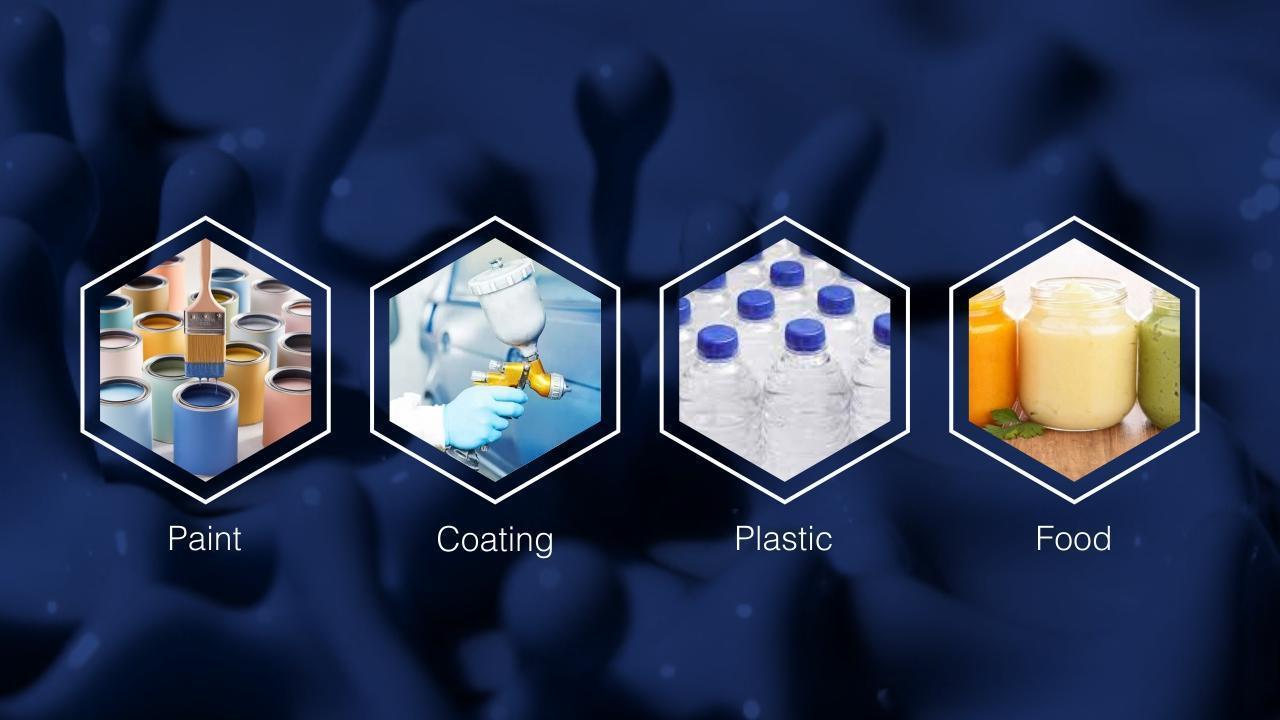Concentrated or dense suspensions are complex fluids composed of solid particles dispersed in a fluid. Dense suspensions are encountered in a multitude of natural and industrially relevant products and processes, such as paints, coating, ceramics, and reinforced polymer composites, coal slurries, and pharmaceutical and food materials.
Understanding the rheology of suspensions of particles in a fluid is now more than 100 years old, but there are still many challenges to understanding it completely. As soon as the concentration of particles in a suspension system increases, challenges begin to appear. One of the main challenges related to dense suspensions is the shear-thickening phenomena where the flow of concentrated suspensions of solid particles can be suddenly blocked by the formation of a percolated network of frictional contacts above a critical value

of shear rate, resulting in an increase in viscosity of the fluid. Solid particles concentration, shape, shear rate, and temperature are the major parameters that could affect the viscosity and shear thickening behavior of a dense suspension.
According to the above-mentioned challenges related to the dense suspensions, it is obvious that the facility with which a dense suspension is processed is an extremely important aspect of its successful use in chemical industries presenting excellent long-term performance and durability.
Heating dense suspensions to prepare them for chemical reactions to obtain end products is usually done using shell-and-tube heat exchangers. However, particulate fouling, which is evolved by the accumulation of solid particles suspended in the process stream onto the heat transfer surface, is the most common and undesirable problem in heat exchangers.
Deposited solids significantly affect the heat exchange surface and therefore reduces the overall operational performance of the heat exchanger. This will result in economic losses due to the increased energy consumption, maintenance, and cleaning. The build-up of fouling also increases the resistance of the fluid passing over the tubes. These side effects combine to increase the pressure drop across the heat exchanger, reducing flow rates and aggravating the problem further. In the worst cases, the heat exchanger quickly becomes blocked.
Klaren Technology offers continuous cleaning solutions for new or existing shell and tube heat exchangers. Our self-cleaning configuration can be realized in all types of industries. A fluidized bed of solid particles is used at the tube side of the self-cleaning heat exchangers where the fouling liquid flows through. The solid particles create a scouring effect on the tube wall surface which removes the developing fouling layer. This prevents severe fouling of shell and tube heat exchangers. Our designs operate up to zero-fouling.
It is highlighted that our system is able to handle dense suspension in the absence of shear thickening efficiently. To be able to deal with shear-thickening suspensions, we need to keep the shear rate below a critical value to prevent a jump in the viscosity and flow blockage in the tubes. This could be achieved by tuning the flow condition in the tubes, i.e., choosing proper flow velocity and porosity or volume fraction of cleaning particles in the flow. We also work on another important parameter to maintain the desired heat duty without forcing process conditions to change drastically which will affect final product specifications. For this purpose, we do accurate rheology tests for each specific suspension to get a deep understanding of the rheological behavior of the flow and make sure that the self-cleaning fluidized bed heat exchanger can perform efficiently and keep the tubes clean when the dense suspension is the process fluid.
With the detailed process understanding, ability to conduct a feasibility study in a short period of time on a variety of fluids and a vast internal database, Klaren’s self-cleaning heat exchanger technology is a proven solution.

